Tallow for Skin | Nature’s Original Moisturizer
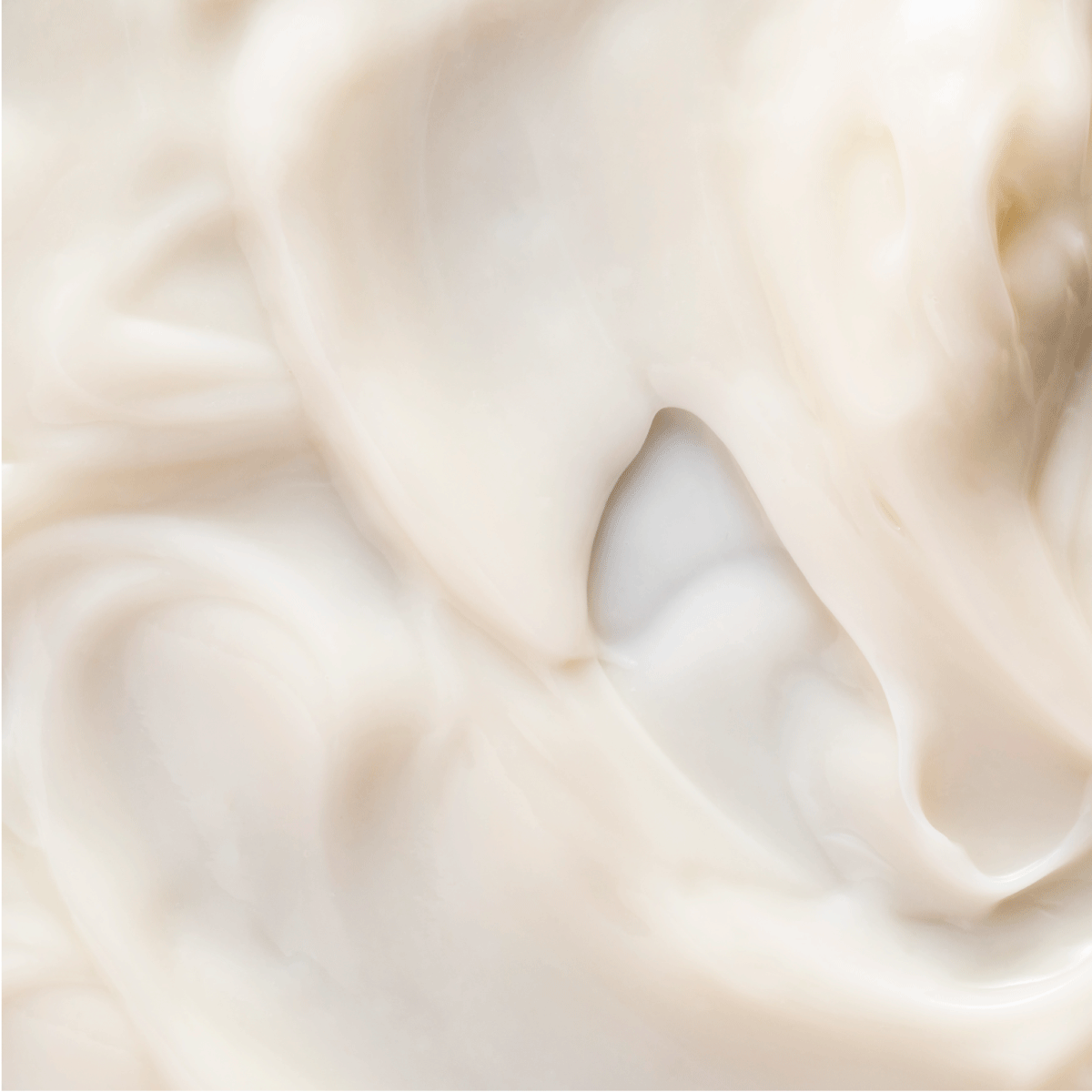
Your Skin's not Thirsty, its Hungry!
What Your Skin Actually Needs: Fats, Vitamins, and Stable Moisturizers.
Why Choose Grass-Fed Tallow for Skincare
About
Deeper Information about Grass Fed Tallow
Tallow vs Seed Oils and Synthetic Moisturizers
How to Read The Label

Scientific Benefits of Tallow for Skin Health
What Drives VAER
Making the Hero Ingredient: Grass Fed Tallow
History of Tallow in Skincare and Ancestral Traditions
Sustainable Skincare with Grass-Fed Tallow
Traditional Tallow Rendering for Skincare Purity
Conclusion
Products with Grass Fed Tallow
| Products | Quantity | Price | Total |
|---|---|---|---|
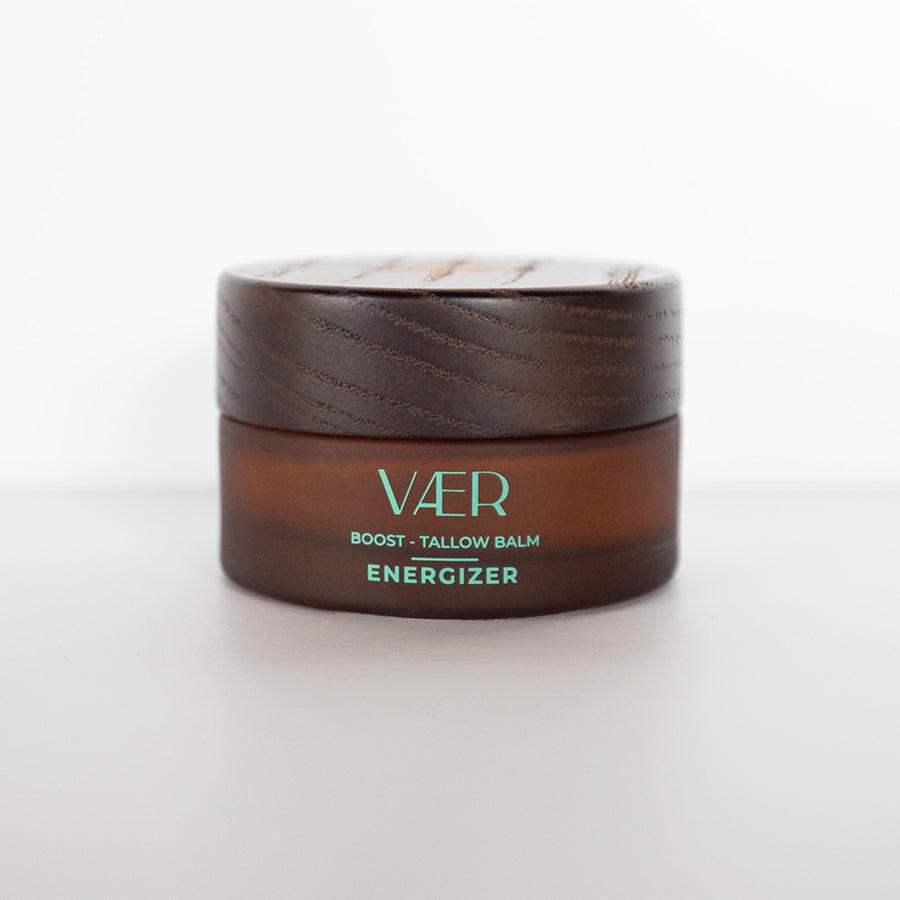 ENERGIZER Boost Tallow Balm (Energizing Ritual)balmenergiser1oz
$54.00/ea
|
|
$54.00/ea | $0.00 |
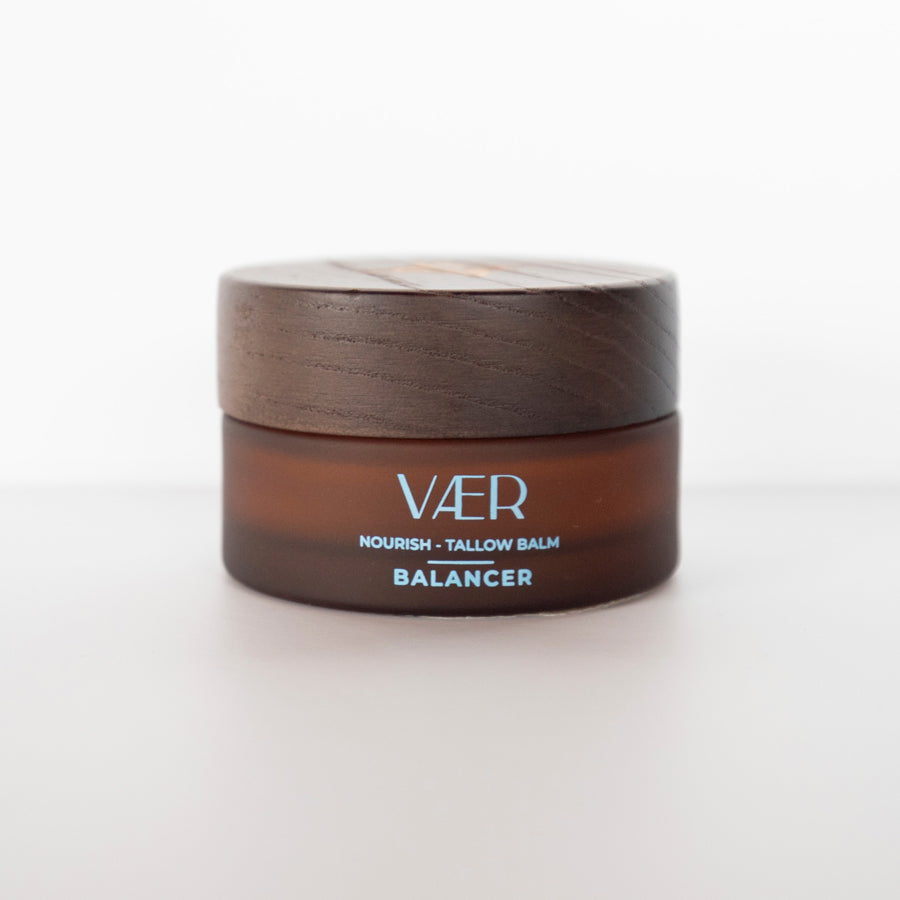 BALANCER Nourish Tallow Balm (Nourishing Ritual)balmbalancer1oz
$54.00/ea
|
|
$54.00/ea | $0.00 |
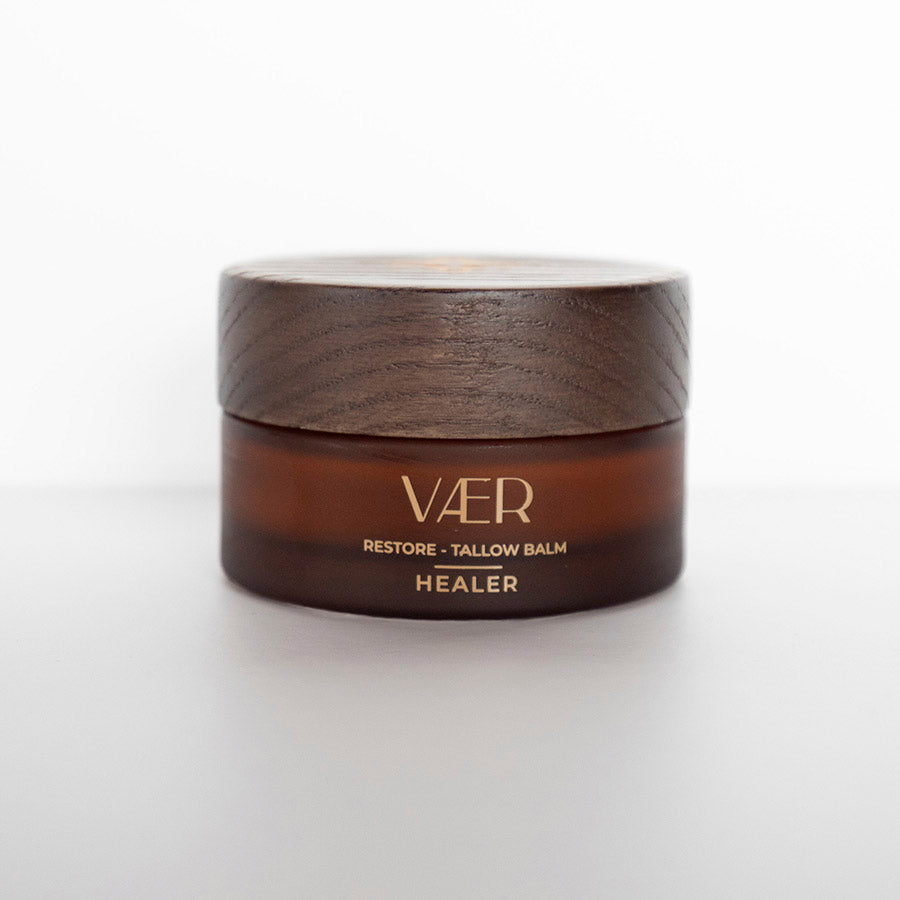 HEALER Restore Tallow Balm (Healing Ritual)balmhealer1oz
$54.00/ea
|
|
$54.00/ea | $0.00 |
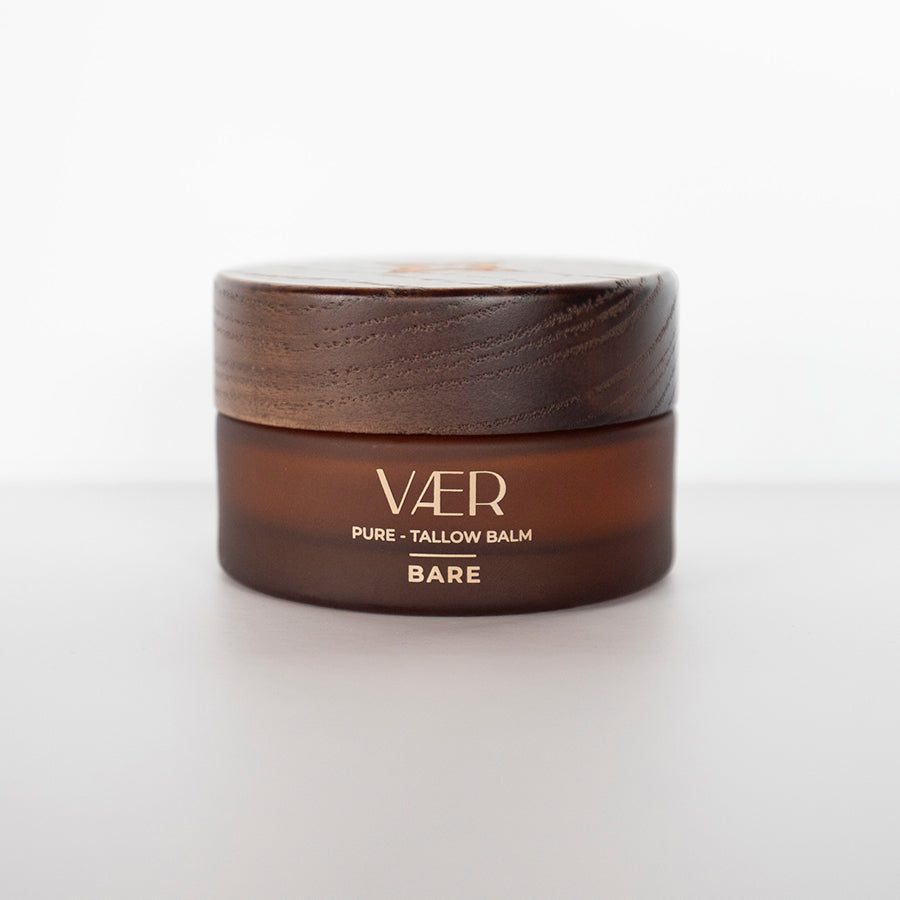 BARE Everywhere Tallow Balm (Pure Ritual)balmbare1oz
$49.00/ea
|
|
$49.00/ea | $0.00 |
| 0 items |
0 items Product subtotal: $0.00 Taxes and shipping calculated at checkout |
||
Frequently Asked Questions
What is tallow and how is it made for skincare?
Does tallow clog pores or cause breakouts?
What vitamins are in tallow, and why do they matter?
Is tallow safe for sensitive skin or babies?
Does tallow smell like meat or beef fat?
What makes tallow better than seed oils or vegetable oil?
Can tallow help with eczema, psoriasis, or barrier damage?
Is tallow an ethical or sustainable skincare choice?
How do I use tallow balm in my routine?
Is tallow suitable for all skin types—dry, oily, or combination?
My pet loves tallow balm when I put it on — is it safe for them?
Can I use tallow balm on lips, hands, or other dry patches?
How does grass-fed tallow compare to store-bought lotions?
Does tallow balm need refrigeration, or how should I store it?
How long does tallow skincare last before it expires?
Is tallow balm greasy or fast-absorbing on the skin?
Can tallow skincare be used alongside other products (like serums or sunscreen)?
Where does VAER source its grass-fed tallow from?
Is there a difference between grass-fed and grain-fed tallow in skincare?
Is tallow safe during pregnancy or breastfeeding?
Is there a difference between cow breeds for tallow in skincare?
How does arrowroot change the texture of tallow balm
Are we claiming medical benefits for tallow?
Is tallow sustainable?
Related Articles
What Is Tallow, and How Is It Made for Skincare?
Tallow is a natural ingredient extracted from the fat (suet) of grass-fed cows and has been used for centuries. The suet is gently rendered, or...
Read more →Is Tallow Vegan? No. But It Might Be More Ethical.
Tallow isn’t vegan - but that doesn’t mean it’s unethical. At VÆR, we use grass-fed, regeneratively sourced tallow as part of a whole-use philosophy that...
Read more →Why Grass-Fed Tallow Skincare Is Taking Off
In a wellness-forward society, it’s no surprise that ancestral ingredients are making a comeback. Here’s why grass-fed tallow—once a forgotten remedy—is now the secret weapon...
Read more →
View More Articles
Does Tallow Clog Pores or Cause Breakouts?
Good quality tallow won't clog pores because its fatty acid profile closely resembles human sebum. It integrates into the skin barrier and promotes natural oil...
Read more →What Vitamins Are in Tallow, and Why Do They Matter?
Vitamins A, D3, E and K2 occur naturally in tallow and your skin recognizes it! Your skin is hungry for them, and can receive them...
Read more →What Makes Tallow Better Than Seed Oils or Coconut Oil?
Tallow naturally occurs containing the vitamins and saturated fats our skin needs and recognizes. Many seed based oils do not and therefore can lay on...
Read more →Tallow vs Coconut Oil: What’s the Difference for Skincare?
Tallow and coconut oil are natural, whole-fat ingredients, but they behave very differently. Absorption, shelf stability and skin compatibility are quite different between the two. Tallow...
Read more →Does VAER Avoid Seed Oils in its Skincare?
Seed oils are everywhere in skincare, and most are highly processed. At VAER, we avoid the highly processed seed oils completely, as the over processing...
Read more →Is Tallow an Ethical or Sustainable Skincare Choice?
Suet, which is un-rendered tallow, is a byproduct of the beef industry that normally is discarded. When sourced from regenerative farms, tallow then becomes a...
Read more →The Science of Linoleic Acid and PUFA Breakdown in Skincare
Most “lightweight” moisturizers are built on unstable seed oils high in linoleic acid—a PUFA that oxidizes easily and harms your skin over time. This article...
Read more →Is Tallow Skincare Safe in Summer or Hot Climates?
Tallow skincare isn’t just safe for summer - it thrives in heat. Learn why this ancestral ingredient remains stable, nourishing, and travel-ready in even the...
Read more →Ethical Concerns about Tallow
Tallow could raise eyebrows—but its environmental footprint may be lighter than you think. From regenerative grazing to zero-waste sourcing, discover why tallow could be a...
Read more →Does Tallow Smell Like Meat or Beef Fat?
Our grass fed beef tallow is slowly and gently rendered to leave you with the purest and cleanest form of tallow. Fragrance free, but still...
Read more →How to read the label on your skincare product
Top 20 common ingredients in skincare products explained
Read more →Bioavailability: Why Tallow Nutrients Outperform Plant-Derived Vitamins
Most skincare labels promise vitamins - but can your skin actually use them? This article explores why grass-fed tallow delivers superior, bioavailable forms of A,...
Read more →
